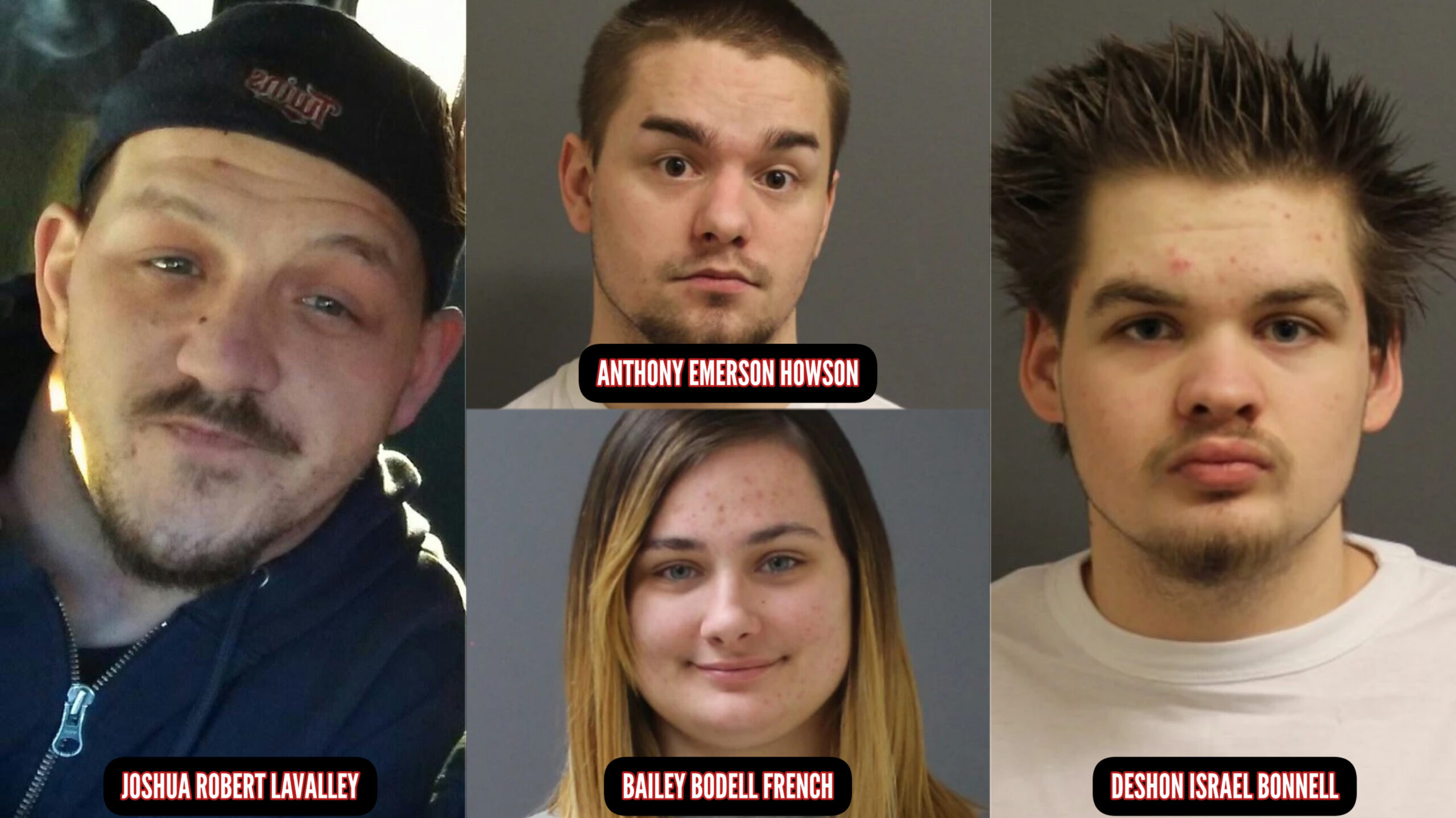A Minnesota man who admitted to fatally shooting an Aurora man along the Mesabi Trail in Hibbing nearly four years ago can withdraw his guilty plea and proceed to trial on murder charges, the Minnesota Supreme Court ruled Wednesday.
The high court reversed 22-year-old Deshon Israel Bonnell’s first-degree murder conviction in the January 2019 slaying of 33-year-old Joshua Robert Lavalley. Bonnell has been serving an automatic life sentence, with the possibility of parole after 30 years, after pleading guilty that same year to intentionally killing Lavalley while committing robbery.
But the Supreme Court unanimously found that the plea was “inaccurate” and would amount to a “manifest injustice” if allowed to stand. Granting Bonnell’s appeal, the justices said the record did not show that the robbery and murder were part of “one continuous transaction.”
“The predicate felony of aggravated robbery was complete when Lavalley’s cash was taken,” Associate Justice Paul Thissen wrote in the 14-page opinion. “There is no evidence — nor even a suggestion — that Lavalley was killed during an escape from the aggravated robbery, or to cover up the aggravated robbery, or, indeed, for any reason related to the aggravated robbery.”
The decision voids a plea agreement and sends the case back to Judge Rachel Sullivan in Hibbing for trial on five charges. But it does not ensure a better outcome for the defendant, as he now faces up to life imprisonment without the possibility of parole if convicted of the top offense, premeditated first-degree murder.
Bonnell was hesitant to provide details about the crime when he struck a deal with the St. Louis County Attorney’s Office in September 2019 to maintain some possibility of eventual release from prison. He did admit to shooting Lavalley twice in the face, but refused to identify his accomplices and said he either would not or could not recount certain events.
Two co-defendants testified in their own plea hearings that Bonnell carried a gun and talked of a plan to kill Lavalley in retaliation for his alleged advances toward Bonnell’s girlfriend, 21-year-old Bailey Bodell French. Authorities said Bonnell, French and a friend, 24-year-old Anthony Emerson Howson, spent the day with Lavalley on Jan. 5, before driving the victim’s roommate’s car to the Kerr area, on the western side of Hibbing, early Jan. 6.
French and Howson testified that a bandanna was placed over Lavalley’s face, and he was led down the trail by Bonnell and French and Howson waited in the car. French said her boyfriend directed her to go back to the car, and she glanced over her shoulder on the way back to see Bonnell complete the execution-style murder.
Lavalley’s body was discovered by a snowmobiler a few hours after he was killed. He had no wallet or identification, so investigators had to use fingerprints to identify the body. Family and friends learned of his death on what would have been Lavalley’s 34th birthday.
At his plea hearing, St. Louis County prosecutor Bonnie Norlander asked Bonnell whether he came into possession of $5 belonging to Lavalley. He admitted he did, and that he had a concealed firearm at the time, but would not identify how the robbery occurred.
“I was an intimidation factor,” Bonnell testified. “I’m just a big guy. All I did was sit there.”
Bonnell’s plea was entered before Judge Mark Starr, who retired prior to Bonnell bringing a petition for postconviction relief at the district court in October 2021. Judge Sullivan denied the petition that December, concluding that Bonnell acted with intent to kill Bonnell after robbing him during a “continuous” event.
But the Supreme Court said the record was scant on details concerning the physical distance and elapsed time between the robbery and killing. Citing three dictionary definitions of the word, justices said it “stretches the ordinary meaning of the statutory language to conclude that the murder of Lavalley on the Mesabi Trail happened ‘while’ Bonnell was committing aggravated robbery in Hibbing.”
“If anything, the fact that two events happened in two distinct places suggests that the killing did not occur while Bonnell was committing aggravated robbery,” Thissen wrote. “That analysis is true on these facts even if we assume that the distance between the two events was relatively short — a matter of a few miles. Notably, we have never affirmed a felony murder conviction when aggravated robbery is the predicate offense and the aggravated robbery and the killing occurred in distinct locations.”
Prosecutors argued there was no “manifest injustice” because Bonnell’s testimony showed that it was a premeditated murder — a crime more serious than that to which he admitted. But the Supreme Court said that argument was forfeited as it was not raised at the district court level.
“What I did was bad,” he said. “But at the time I thought what I was doing was right.”
Bonnell will now face his original charges: premeditated first-degree murder, first-degree murder while committing kidnapping, aiding and abetting intentional second-degree murder, kidnapping and aggravated first-degree robbery.
Howson is serving a 25 ½-year sentence after pleading guilty to aiding and abetting intentional second-degree murder. He also sought to withdraw his plea, but Sullivan and the Minnesota Court of Appeals said he clearly admitted an intent to further the commission of the crime, and the Supreme Court in October declined to take up his case.
French is serving 37 ¾ years after pleading guilty to intentional second-degree murder and kidnapping. She later challenged the imposition of consecutive sentences as “unreasonable” — citing her age, mental illness and lesser culpability — but the Court of Appeals said in September 2021 that the prison term was clearly permissible under the terms of her plea agreement and she had not provided “compelling circumstances to warrant modification.”


Tell us your thoughts...